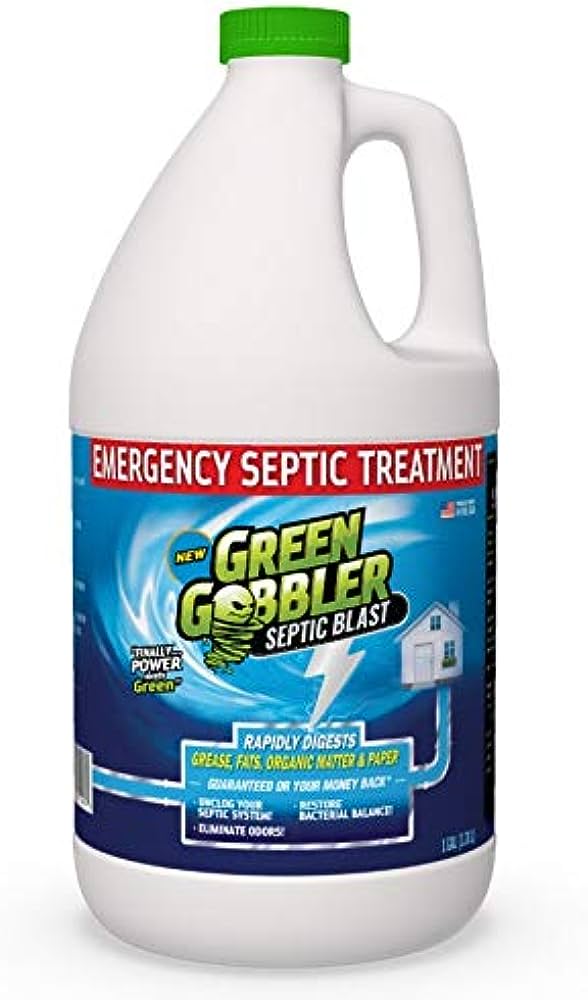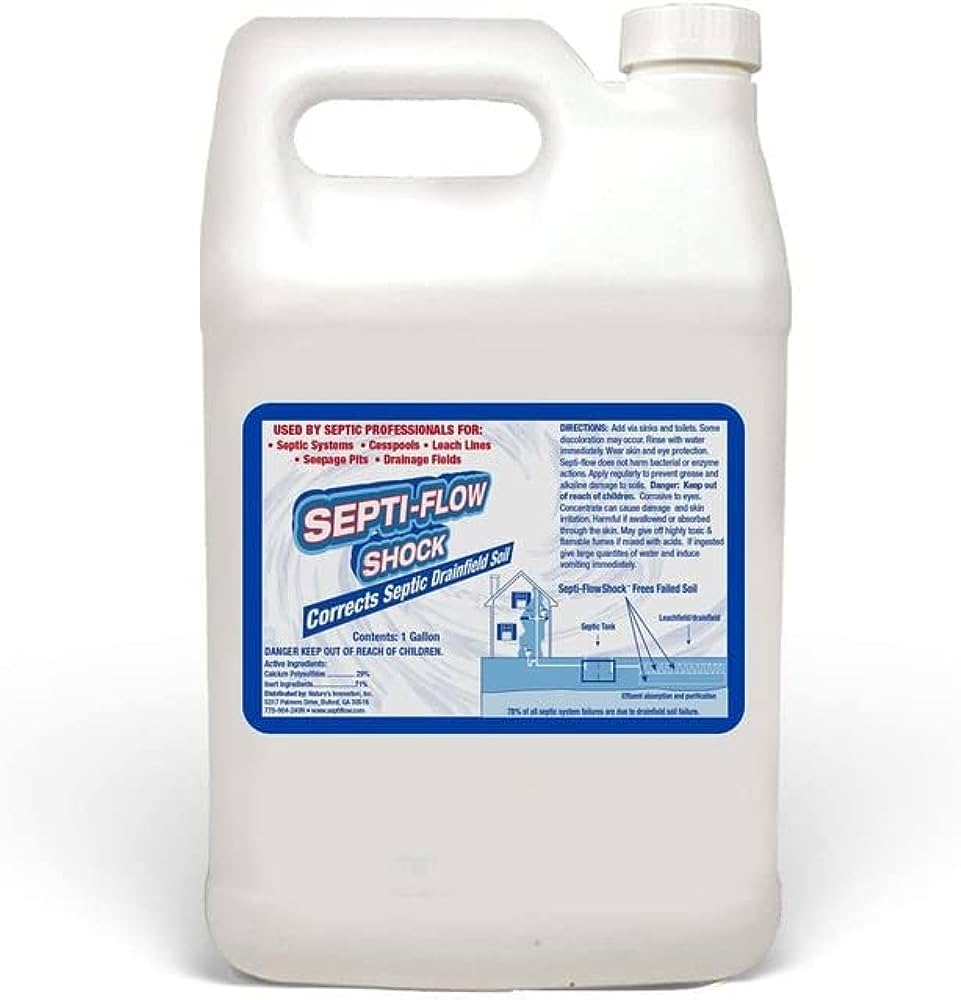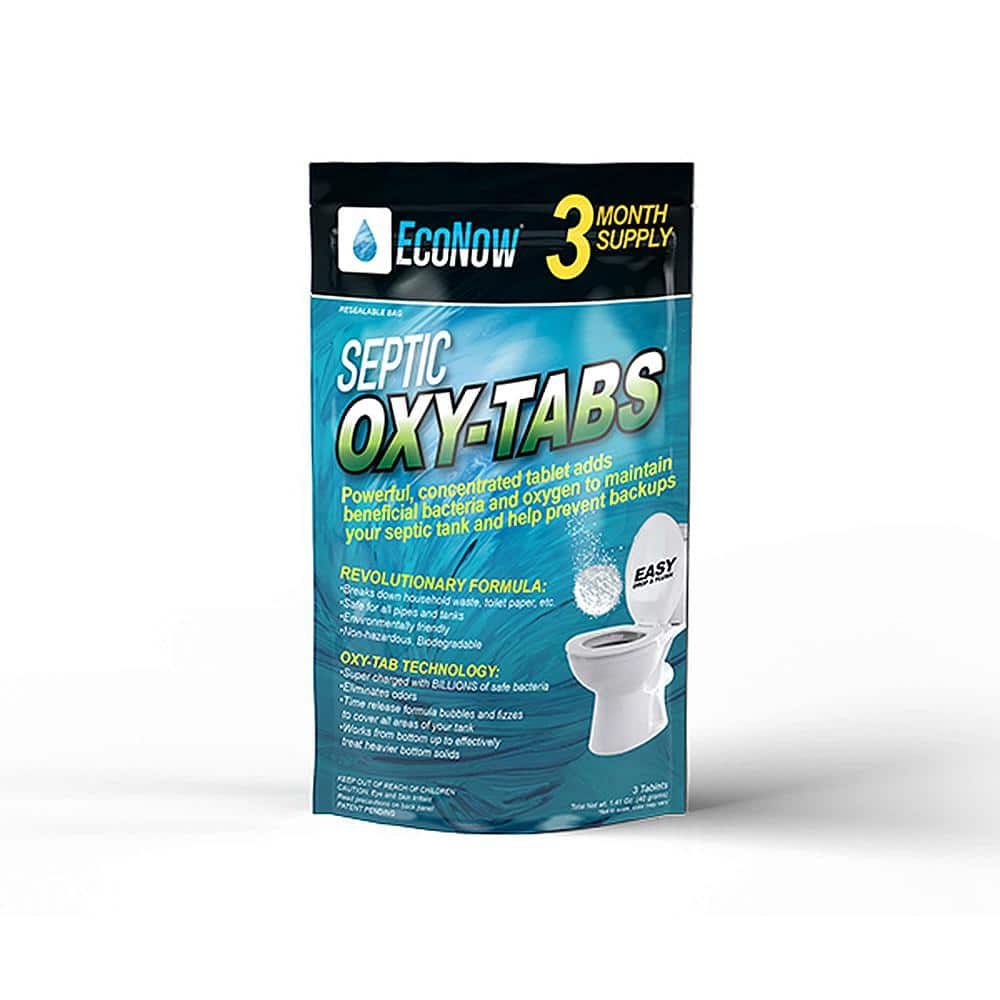Are you in need of the best septic tank treatment for optimal maintenance? Look no further! We understand the importance of taking care of your septic system, and that’s why we have explored the top products available in the market. With our thorough research, we can provide you with the information you need to make an informed decision.
Maintaining your septic tank is crucial for ensuring its longevity and functionality. From enzymes to bacteria-based treatments, there are various options that offer effective results. By exploring and comparing the top products, you can choose the best one that suits your specific needs. We have done the hard work for you, so sit back and let us guide you through the world of septic tank treatments. With our help, you’ll be able to find the perfect product to keep your septic system in optimal condition.
Understanding Septic Tank Treatment
Importance of septic tank treatment
Maintaining a healthy septic tank is crucial for the proper functioning of your plumbing system and the protection of the environment. Septic tank treatment helps break down solid waste and other organic matter, preventing clogs and ensuring efficient waste disposal. It also promotes the growth of beneficial bacteria that aid in the decomposition process. Neglecting septic tank treatment can lead to costly repairs, foul odors, and even contamination of groundwater.
How septic tank treatment works
Septic tank treatment involves the use of specialized products that introduce bacteria and enzymes into the tank. These bacteria actively break down the waste, converting it into liquid and gas, which can then be safely absorbed by the soil. The enzymes in the treatment products serve as catalysts, speeding up the decomposition process. Regular treatment ensures the proper balance of bacteria in the tank, optimizing its performance and preventing issues such as clogs, odors, and backups.
Common issues with septic tanks
Septic tanks can experience various issues if not properly maintained. Some common problems include:
-
Clogs and backups: Accumulated solid waste or excess grease can cause clogs in the pipes or the tank itself, leading to backups and slow draining fixtures.
-
Foul odors: Lack of proper treatment or excessive waste buildup can result in unpleasant smells emanating from the septic tank or drain field.
-
Drain field saturation: If the drain field becomes saturated with liquid waste, it can lead to pooling water, soggy areas, or even sewage surfacing on your property.
-
Damage to the tank: Harsh chemicals or heavy vehicles driving over the tank can cause damage, leading to leaks, cracks, or full-on collapse of the tank.

Factors to Consider when Choosing a Septic Tank Treatment
Type of septic tank
Different septic tank types require different treatment products. Septic tanks can be made of concrete, fiberglass, or plastic. Concrete tanks are more common and can handle a wider range of treatment options. Plastic and fiberglass tanks are more susceptible to damage from certain enzymes and harsh chemicals, so it’s important to choose a treatment product compatible with your tank material.
Size of the septic tank
The size of your septic tank will determine the amount of treatment product needed for proper maintenance. Larger tanks may require higher concentrations of bacteria and enzymes to effectively break down waste. It’s essential to consider the size of your tank when selecting a treatment product to ensure the optimal balance for a healthy septic system.
Soil conditions
The composition and drainage capacity of the soil in your drain field play a significant role in the performance of your septic system. Some treatment products work better in certain soil conditions. For example, if your soil has high clay content, you may need a treatment product that helps improve drainage and prevent soil saturation. Understanding your soil conditions will help you choose a treatment product that complements your septic system’s needs.
Environmental impact
It’s important to choose a septic tank treatment product that is environmentally friendly and does not harm the ecosystem. Look for products that are biodegradable and do not contain harsh chemicals or toxic substances that can leach into the soil or water sources. Opting for eco-friendly treatment options will not only protect the environment but also contribute to the long-term health of your septic system.
User-friendly application
Consider the ease of application when selecting a septic tank treatment product. Look for products that come with clear instructions and require minimal effort to use. Some treatment products come in convenient, pre-measured packets or tablets that can be simply dropped into the toilet or flushed through a sink. Choosing a user-friendly product will make the maintenance process hassle-free and convenient for you.

Top Septic Tank Treatment Products in the Market
Product 1: [Product Name]
Overview of Product 1
Product 1 is a highly-rated septic tank treatment solution that combines powerful bacteria strains and enzymes to effectively break down waste and prevent clogs. It is suitable for all types of septic tanks and offers long-lasting results.
Features and Benefits of Product 1
- Rapid breakdown of solid waste: Product 1’s powerful bacteria strains and enzymes work together to break down solid waste quickly and efficiently, preventing clogs and backups.
- Odor control: The treatment product eliminates foul odors by promoting the decomposition of waste, reducing the production of unpleasant smells.
- Safe for the environment: Product 1 is environmentally friendly and safe for use around plants, animals, and water sources.
User Reviews and Ratings
“Product 1 has completely transformed my septic system! No more backups or odors, and it’s easy to use. Highly recommend!” – John D.
“Been using Product 1 for years, and it’s never let me down. Keeps my septic tank running smoothly without any issues.” – Sarah P.
Product 2: [Product Name]
Overview of Product 2
Product 2 is a reputable septic tank treatment product that utilizes advanced enzymatic technology to effectively break down waste and maintain a healthy septic system. It is specially formulated for larger septic tanks.
Features and Benefits of Product 2
- Enhanced waste digestion: Product 2’s enzymatic technology ensures thorough waste digestion, preventing the accumulation of solids and reducing the risk of clogs and backups.
- Long-lasting performance: The treatment product continues to work effectively for an extended period, requiring less frequent applications.
- Compatible with various soil conditions: Product 2 adapts well to different soil types, ensuring optimal performance in a variety of septic system setups.
User Reviews and Ratings
“Product 2 has made a noticeable difference in the performance of my septic system. It’s easy to use, and I no longer worry about blockages or odors.” – Emily S.
“I have a large septic tank, and Product 2 has been my go-to treatment option. It keeps everything running smoothly, even with heavy usage.” – Michael T.
Product 3: [Product Name]
Overview of Product 3
Product 3 is a popular septic tank treatment solution that utilizes natural enzymes to break down waste and maintain a healthy balance of bacteria in the tank. It is known for its versatility and effectiveness across different septic tank types.
Features and Benefits of Product 3
- Natural and eco-friendly: Product 3’s enzyme-based formula is biodegradable and poses no harm to the environment.
- Versatile application: The treatment product can be used in various septic system setups, including both residential and commercial properties.
- Prevents drain field saturation: Product 3 helps enhance soil drainage, preventing the saturation of the drain field and avoiding potential issues.
User Reviews and Ratings
“Product 3 is fantastic! It keeps my septic system in excellent condition, and I appreciate the fact that it’s environmentally friendly.” – Linda M.
“The best thing about Product 3 is its versatility. It works great for my home’s septic tank, and I’ve also recommended it to friends with different types of tanks.” – David R.
Product 4: [Product Name]
Overview of Product 4
Product 4 is a reliable septic tank treatment product that combines bacteria and enzymes to break down waste effectively and keep your septic system running smoothly. It is suitable for all septic tank types and is designed for long-term maintenance.
Features and Benefits of Product 4
- Prevents backups and clogs: Product 4’s powerful bacteria strains ensure the rapid breakdown of waste, minimizing the risk of clogs and system failures.
- Improves overall efficiency: The treatment product helps maintain a healthy balance of bacteria in the tank, optimizing the performance and longevity of your septic system.
- Reduces maintenance costs: Regular use of Product 4 can help prevent costly repairs and prolong the lifespan of your septic system.
User Reviews and Ratings
“Product 4 has been a game-changer for my old septic tank. It has eliminated odor issues and kept everything flowing smoothly. Highly recommended!” – Karen L.
“After trying various treatment products, I’m sticking with Product 4. It’s reliable, easy to use, and I’ve noticed a significant improvement in my septic system’s performance.” – Robert H.

DIY Septic Tank Treatments
Natural remedies for septic tank maintenance
Maintaining your septic tank doesn’t always require store-bought treatments. There are several natural remedies you can try to keep your septic system healthy:
- Regularly adding baking soda or vinegar to your drains can help prevent the buildup of grease and keep your pipes clean.
- Grass clippings, leaves, and other organic materials can be spread over the drain field to enhance microbial activity and nutrient absorption.
- Introducing beneficial bacteria through the use of yogurt or buttermilk can help maintain a healthy balance in your septic tank.
Homemade septic tank treatment recipes
If you prefer a more hands-on approach, you can create your own septic tank treatment solutions using common household ingredients. Here are a few simple recipes:
-
Baking Soda and Vinegar Mixture: Combine half a cup of baking soda with one cup of vinegar. Pour the mixture down the drains or directly into the toilet to help break down waste and reduce odors.
-
Yogurt Treatment: Add a cup of plain, unsweetened yogurt to your septic tank to introduce healthy bacteria. This can encourage the breakdown of waste and prevent issues caused by an imbalanced microbial ecosystem.
-
Citrus Peel Solution: Place citrus peels (lemon, orange, or lime) in a jar and cover them with white vinegar. Let the mixture sit for a couple of days. Use this solution by pouring it down the drains to help eliminate odors and maintain a clean plumbing system.
Pros and cons of DIY septic tank treatments
While DIY septic tank treatments can be cost-effective and easy to implement, there are some drawbacks to consider:
- Uncertain effectiveness: DIY treatments may not offer the same level of effectiveness as commercially developed products that are specifically formulated for septic tank maintenance.
- Lack of long-term results: Homemade remedies may provide temporary solutions but often fail to address the underlying issues that can lead to septic tank problems over time.
- Risk of causing harm: Improperly mixed or applied DIY treatments can potentially harm your septic system or the environment, so it’s important to follow recipes and guidelines carefully.

Professional Septic Tank Treatment Services
Benefits of professional septic tank treatments
Hiring professional septic tank treatment services offers several advantages, including:
- Expertise: Professionals have in-depth knowledge of septic systems and can provide tailored treatment plans based on your specific needs.
- Quality products: Professionals use high-quality, industry-grade treatment products that are often more potent and effective than over-the-counter options.
- Comprehensive maintenance: Professional services typically include regular inspections, pumping, and other maintenance tasks that ensure the optimal health and longevity of your septic system.
Different types of professional treatments
Professional septic tank treatment services offer a variety of treatment options, including:
-
Bacterial treatments: Providers introduce specialized bacteria into the septic tank, promoting the breakdown of waste and preventing clogs and odors.
-
Chemical treatments: These treatments involve the application of safe and effective chemicals that assist in waste digestion and odor control.
-
Pumping and maintenance: Professional services often include routine pumping and thorough inspections to ensure the proper functioning of your septic system.
Choosing the right septic tank service provider
When selecting a professional septic tank treatment service, consider the following factors:
- Reputation and experience: Look for service providers with a proven track record and positive customer reviews. Experience and expertise are crucial in this field.
- Licensing and certification: Ensure that the service provider holds the necessary licenses and certifications to perform septic tank treatments and maintenance.
- Comprehensive services: Choose a provider that offers a range of services, including regular maintenance, emergency repairs, and long-term treatment plans.

Regular Maintenance for Optimal Septic Tank Health
Importance of regular septic tank maintenance
Regular septic tank maintenance is essential for the overall health and longevity of your system. It helps prevent costly repairs, extends the lifespan of your septic tank, and ensures efficient waste disposal. Neglecting maintenance can lead to backups, foul odors, and even complete system failure.
Recommended septic tank pumping frequency
Septic tank pumping frequency depends on several factors, including the size of your tank, the number of occupants in your home, and the amount of waste generated. As a general guideline, it is recommended to have your septic tank pumped every 3 to 5 years. However, it’s best to consult with a professional to determine the optimal pumping schedule for your specific circumstances.
Signs of a failing septic system
Recognizing the signs of a failing septic system is crucial for prompt action and avoiding serious damage. Some common signs include:
- Slow draining fixtures: If your sinks, showers, or toilets are draining slowly, it may indicate a clog in your septic system.
- Foul odors: Persistent unpleasant smells inside your home or around the septic tank area can be a sign of a septic system issue.
- Pooling water or soggy areas: If you notice standing water or soggy spots in your yard, it may indicate that your septic system is not adequately disposing of liquid waste.
- Sewage backups: A backup of sewage into your home or yard is a clear indication of a significant septic system failure.
Tips for septic tank care
To maintain optimal septic tank health, follow these tips:
-
Conserve water: Excessive water usage can overload your septic system. Use water-saving fixtures and avoid running multiple appliances simultaneously.
-
Avoid flushing non-biodegradable items: Only flush toilet paper and waste. Flushing items such as sanitary products, wipes, or cooking grease can cause clogs and damage your septic system.
-
Be cautious with chemicals: Harsh chemicals can disrupt the beneficial bacteria in your septic tank. Use septic-safe cleaning products and avoid pouring chemicals directly into drains.
-
Limit garbage disposal use: Garbage disposals can strain your septic system. Dispose of food scraps in the trash or compost bin instead.
-
Regularly inspect your system: Monitor your septic system for any signs of issues, such as strange odors, slow drains, or water pooling. If you notice anything unusual, seek professional assistance.
In conclusion, understanding septic tank treatment is essential for maintaining a healthy and efficient septic system. By considering factors such as tank type, size, soil conditions, and environmental impact, you can choose the right septic tank treatment product. Additionally, exploring top-rated products, considering DIY options, and knowing the benefits of professional services will help you make informed decisions about the care of your septic system. Regular maintenance, including pumping and following proper care practices, will ensure optimal septic tank health and longevity. Remember, a well-maintained septic system leads to a cleaner environment and a smoother-functioning plumbing system.
